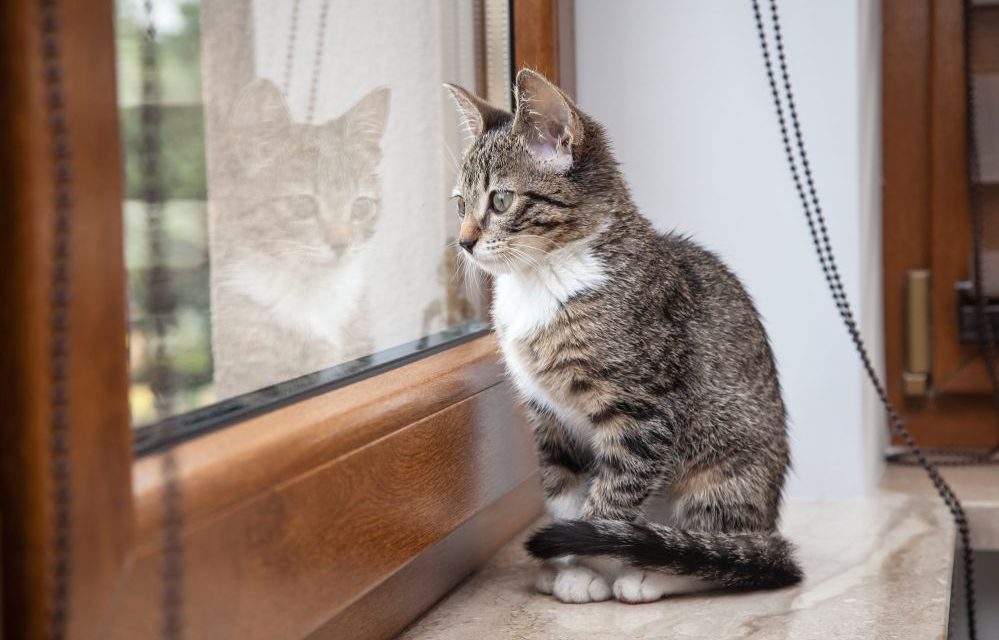
When moving to another country with a dog and a cat, we get stressed, but did you know that even they are not free from anxiety or animal depression?
These psychological disorders can be triggered by a variety of reasons, from the death of a family member to the arrival of a new pet.
Moving a country with a dog or cat, as well as simply changing a home, is another factor that is related to the development of depression in animals.
Dogs and cats get used to a place and may feel out of place in new and unfamiliar places.
Pets with this disorder have several symptoms, but their owners are not always able to quickly identify them.
In order for depression to be treated in its early stages, an early diagnosis is necessary. This facilitates treatment and makes the animal’s recovery much more efficient.
Now, if you want to move to another country and want to know how to avoid stress and even depression in your pets, keep reading this article that a PETFriendly Tourism prepared for you.
What is animal depression?

Very common in humans, depression is a psychological disorder that also affects many animals, especially pets, to a lesser extent.
However, tutors often face difficulties in diagnosing the disease, as the symptoms can be confused with other pathologies.
Delay, in turn, can cause a worsening of depression, delaying and making treatment more difficult.
The disease is often confused with Separation Anxiety Syndrome – SAS (also known as abandonment syndrome).
In both cases, the pet can become anxious and aggressive, destroy objects and even faint.
Depressive symptoms in dogs and cats can be triggered by several factors, such as:
- Being alone for a long time;
- Losing a family member;
- Experiencing trauma;
- Experiencing abuse;
- Moving home or country .
It is important to emphasize that there are no breeds more or less prone to develop animal depression.
What can cause animal depression?
The separation of a pet from someone close is one of the main causes of depression.
According to a survey by Emory University (USA), pets love their owners and see them as part of the pack.
For this reason, they tend to develop depression when a person dies, stays away for a long time or abandons them.
Moving to another country with a dog or cat or moving house also affects the emotional health of animals.
Cats, who are very territorial, tend to suffer more than dogs, but this affects both.

1. Death of a person or pet
Stories from dogs that continue to wait for their deceased owners at home or at train stations, as in the movie “Always by Your Side”, are quite common because they have a very strong affectionate relationship with human beings.
In this way, it is common for some to have difficulties in dealing with the death of people close to them and end up developing animal depression.
The same occurs when animals lose or are separated from pets that are part of their coexistence.
2. Arrival of a new family member
The arrival of a baby or another pet changes the whole dynamics of the house and the people who live there, after all, it may be necessary to change several habits.
And if this impacts the life of the human being, it is no different for the pet. They are usually stressed by the new routine and the arrival of a new member.
If this condition is not treated, it can turn into depression.
3. Space Deprivation
Another factor that triggers psychological disorder is lack of space. Both dogs and cats need a big place to move, play and spend their energy.

Therefore, those who raise animals in small environments, such as apartments, need to include walks, walks and physical activities in their routines.
Otherwise, pets can develop various disorders.
In addition, pets also need an exclusive, airy, clean place with fresh water always available.
This is essential when moving house or even country. Prepare the place to receive your pet.
Therefore, those who raise animals in small environments, such as apartments, need to include walks, walks and physical activities in their routines.
Otherwise, pets can develop various disorders.
In addition, pets also need an exclusive, airy, clean place with fresh water always available.
This is essential when moving house or even country. Prepare the place to receive your pet.
5. Traumatic Events
Finally, being run over, surgery and mistreatment (which is even a crime) can alter the behavior and emotional state of pets.
The change of country is also a traumatic event, since the animal will change its environment from one hour to the next, in addition to facing hours of plane to reach the destination.
How to avoid depression when moving to another country with a dog and a cat?
Although it is not possible to predict whether the dog or cat will develop a disorder after moving to another country, you can minimize this risk by adopting some attitudes.
The first step is to plan to move to another country with a dog or cat, for a season similar to what the animal is used to.
The difference in weather, especially if you live in a warmer city and go to a place where it snows, can make it difficult for your pet to adapt.
You still need to program yourself not to leave the animal alone in the first few days. If this is not possible, invest in the environmental enrichment of the space.
This technique is used to make the place where dogs and cats live more challenging, fun and attractive. However, its use prevents stress and anxiety.
Finally, search for parks and places where your pets can walk around without problems and spend their energy. Searching for pet shops and veterinary clinics is also important.
How to know if the dog or cat is depressed when moving to another country?
Although it is difficult to identify animal depression, pets tend to behave differently than usual, including:
- Lack of interest in routine activities;
- Self-mutilation;
- Aggressiveness;
- Drowsy;
- Loss of appetite .
Lack of interest in routine activities
Most pets love to go out for walks, play and cuddle with their owners.
So one of the signs of depression is that they lose interest in these activities.
On the other hand, tutors should be careful when playing games that generate discomfort and anxiety in the animal.
Self-mutilation
Unlike cats, dogs are not in the habit of licking themselves often. So, if they start doing this, it’s a sign that something is not going well and needs to be checked.
In more severe cases, they can still bite each other and cause injury.
Aggressiveness
Pets with depression show changes in their behavior and tend to become more aggressive.
Even the most docile pet can bark or bite people they know or animals they live with.
Drowsy or lack of sleep
The psychological disorder can also cause the animals to become quieter and lie down in your bed.
This is a symptom easily seen in more agitated and active dogs.
On the other hand, a pet with animal depression may also have difficulty sleeping, even in a quiet or low-light environment.
Loss of appetite
Finally, total denial of food is a sign that your pet is depressed.
Often, the animal prefers leftover food than food, so it is important that tutors do tests and analyze the behavior of the pet.
Is it possible to treat animal depression?

Yes, depression in pets can be treated, especially if diagnosed early.
Treatment of depression consists of the use of medication to alleviate symptoms, such as antidepressants, homeopathic and allopathic.
However, they need to be prescribed by the professional after an accurate assessment and identification of the disease.
The vet can still recommend specialized therapies and try to identify what caused the depression.
So, if you notice any of the symptoms mentioned above in your animal, try to take it to your trusted professional as soon as possible.
Now, if you want to know more about the documentation needed to move your pet to another country, contact PETFriendly Turismo
Our experts are ready to answer all your questions and help you find the best way to take your pets.





You must be logged in to post a comment.